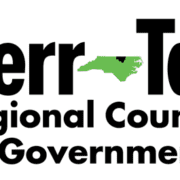Cooperative Extension with Jean Bell 06/07/18
/by Charlene
Summer Learning
Kids work hard during the school year and look forward to summer break. Kids and parents do need downtime from schoolwork and projects, but students can lose ground over the summer, forgetting what they learned the previous year. Parents can help prevent this from happening by planning some simple summer activities to help keep kids engaged in learning.
One of the most important activities you can do with your child over the summer school break is to encourage reading. Make reading fun for your child this summer and let your kids know that reading is important. Set a good example by reading together as a family. Let kids know that their parents read for pleasure, and let your kids see you reading.
Go to the library or bookstore together and let kids select books on any topic that interests them. Ask the librarian for help in selecting books that are at your child’s reading level. Even if your child is not yet reading on her own, take her to the library and let her select books that interest her, then read them aloud together. If a book is a little above your child’s reading level, but he is interested in the topic, select the book as one that you will read aloud together. Reading aloud together is a wonderful way to let your child know that reading is enjoyable and can spark discussion on new topics and interests between parents and kids.
Talking and listening to kids about what they are reading is a good way to get to know your kids and is a way to encourage learning. Ask your kids questions about what he is reading. Go beyond the easy questions like “What book are you reading?” and ask her about the story and the characters. You could ask your child questions like “Why do you think the character did that?” or “What do you think could happen next?”
Listen to your child’s ideas about the book. Asking more in-depth questions helps your child think about the meaning of what he reads. Don’t forget about having talks when you and your child are together. This is a great way to learn about how your child thinks and feels. You might talk in the car when traveling or just at home in the evenings since there’s no homework to do! Your preschooler has ideas too, and when you talk and listen and sing to your preschool child you also teach your child vocabulary and how language works.
Along with reading, talking and listening to your child, writing is another way your child learns to express himself and learns language. Your child may already be able to write his name and his ABC’s but that doesn’t mean that he can’t have fun writing. Make writing fun by writing your children of all ages a note, and have them write you a note back. Find a pen pal for an older child. Have kids write your shopping list, then take the list to the store when you shop and have the kids check off the items as you put them in the cart. Kids can even write and illustrate their own comic or short story on anything that interests them. Show your kids how you use writing in everyday life, that writing can be a good creative outlet.
Helping kids continue to learn during the summer does not mean that you have to do worksheets and tests, just showing your kids that reading is a fun activity will help them to be ready for the next school year
Cooperative Extension with Jean Bell 05/31/18
/by Charlene
Using Natural and Logical Consequences- Consequences are a result of something someone does. Parents often use natural and logical consequences as a part of their discipline techniques. This can be a very effective discipline strategy. Consequences can help children learn responsibility for their actions. It separates the action from the child and does not shame or punish the child since the child makes the choice and gets to experience the results of her actions. When the result of the child’s action is negative, the child has to deal with that result.
First, let’s talk about the difference between a natural and a logical consequence. Natural consequences happen without the parent doing anything. If your child doesn’t want to wear a coat on a cold or rainy day, and he goes outside he will get cold or wet. The parent did not have to do anything, the consequence happened because of the child’s decision not to wear a coat. The hard part of letting the child experience a natural consequence for the parent is that the parent does not want the child to get cold or wet in the weather, so parents often insist that the child wears a coat for his own good. If you safely can, let the child make the decisions and let him experience the consequences of his decision.
Logical consequences are imposed as a result of the child’s actions by the parent. One way to think of this is if you break it or mess it up – you fix it or clean it up philosophy. The parent has to decide on a consequence for an action and then allow the child to experience the consequence. Logical consequences work best if they are discussed with the child beforehand and are not too lengthy. A good example of a logical consequence would be if your child threw his ball into the street after being reminded of the rule to only throw the ball in the backyard. In this case, the parent would take the ball away for a short time, maybe an hour. Or a child could color on the table after being told to only color on paper. The child could lose her crayons for an hour and have to help the parents clean up the mess. Or you could have a child who refuses to eat dinner, a logical consequence could be that the child cannot have dessert. Consequences that are tied directly to the action work best.
Talking to kids about using logical consequences before your child misbehaves is best. Identify a problem behavior and talk to your child about the behavior. If possible, write the rule you want the child to follow down and post it and the consequence for breaking the rule. Your rule may be “play with balls only in the backyard” or “you must eat dinner before you eat dessert.”
Discuss the rules with your child, and then explain what the consequences will be for breaking the rule. Then, if the rule is broken and your child takes the ball into the front yard and throws it across the street or refuses to eat dinner, the parent must calmly remind the child of the consequence for breaking the rule and tell the child that she has a choice. Your child may choose to eat dinner so she can eat the dessert, or he may choose not to eat dinner in hopes that you will let him eat dessert if he says he is still hungry. As a parent you have to be firm with your child and follow through on the consequence, even if your child is uncomfortable. Don’t nag, lecture or argue with your child about the consequence. Just remind him that he made a choice, and he can make a different choice next time if he does not like the results of his choice. In this way, your child can learn responsibility for his actions and will come to understand that the choices she makes have consequences.




